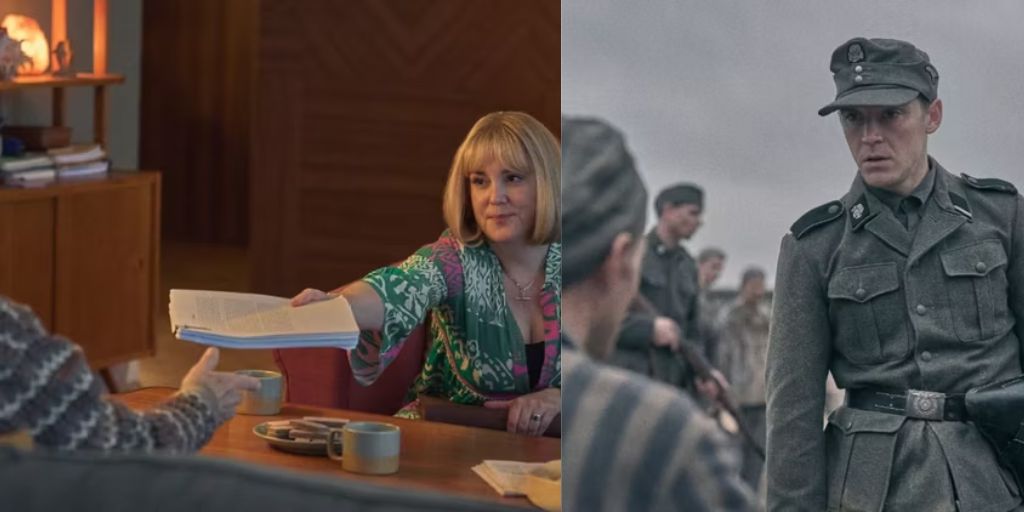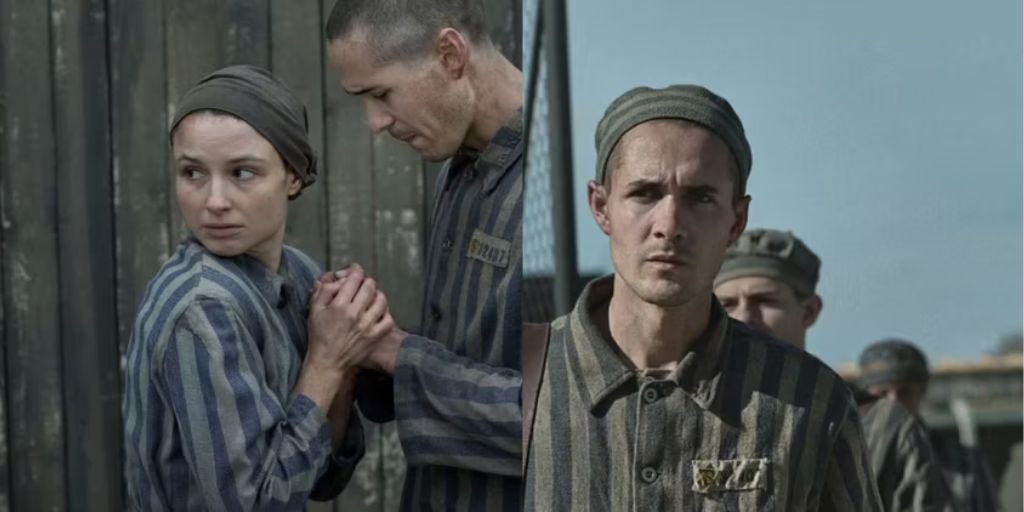The horrors of the Holocaust and crimes against humanity are always tough to watch. Peacock’s six-part miniseries, The Tattooist of Auschwitz, is particularly intense and honest, showing the brutal way Nazis treated Jewish people under Hitler during World War II.
The true story of Lale Sokolov is told through flashbacks by an older Lale, played by Harvey Keitel, who recounts his grim experiences to Heather Morris, the author of the 2017 novel. Some details of the series, based on true events, have been questioned by viewers and critics. Morris says it’s a 95% accurate retelling by Sokolov and herself.
Morris also shared with The Guardian that some parts of the story were changed for dramatic effect, placing Lale (Jonah Hauer-King) and Gita (Anna Prochniak) in dramatic situations. Sokolov, who died in 2006, called it “a love story.”
Despite surviving and marrying after the war, the series shows the graphic and harsh treatment of Jewish prisoners by Nazi camp commandants and soldiers. Award-winning director Tali Shalom-Ezer understands the material well but there are gaps in the overall story.
Heather Morris Spent Three Years Listening to Lale Sokolov’s Memories
In the show, Morris and Sokolov’s interviews move into the horrors of his WWII experiences and the Auschwitz camp when he was in his twenties. After three years together, Morris and the elderly Sokolov became close friends.
Morris was also a hospital administrator, deciding whether to share Lale’s story as a screenplay or a novel. A sad part of The Tattooist of Auschwitz is how Lale, thinking he could help, volunteered without knowing the horrors he would face. The show highlights his romance with Gita Furman, which becomes the heart of the story.
Lale becomes the tattooist, marking his fellow Jews with identification numbers on their arms. This job, while dehumanizing, brings him closer to Gita.
Lale’s identification number 32407 is confirmed by Auschwitz’s records, though there are questions about Gita’s number. The irony is clear: Lale helps the Nazis dehumanize people with a few needle pricks, but survivors carry those marks for life.
Morris and Sokolov Call ‘The Tattooist of Auschwitz’s Events “A Love Story”
Morris explained to The Guardian, “I’m just trying to tell a simple love story. But one that stood the test of time,” and Sokolov likely wanted it remembered this way.
Their romance, born from unimaginable evil, adds a compelling drama to the story. Their secret meetings bring hope in a dark, deadly world. However, some critics argue that the story’s truth has been sacrificed for dramatic purposes.

The Auschwitz Memorial Research Centre suggests reading accurate historical records, noting that “the book contains numerous errors and exaggerations.” This raises the question of how to balance fact with drama. Shalom-Ezer told TIME, “Ultimately, the history that we’re telling is Lale’s history.
We believe Lale. We’re going to tell his memory exactly the way that he described it.” Executive producer Claire Mundell also clarified, “It’s a drama. For the purposes of the narrative, we sometimes have to make choices, but it’s based on Lale’s true recollections.”
Lale and Gita’s Romance Plucked From the Horrors of the Holocaust
The love story Lale Sokolov shared with Heather Morris, which she later wrote about, is one of many from this tragic period. It makes an unimaginable situation more understandable for viewers. Despite the long gap since these events, the story shows how people can find hope and connection even in the darkest times.
In actuality, it’s a story that, in some way, makes the unbearable circumstances that befell the people who perished so horribly bearable. It makes it something that we, the viewers, can watch and relate to, even when we have never experienced such cruelty or been even slightly desperate.
The Tattooist of Auschwitz is best viewed, perhaps, by separating the two main characters’ love story from a collection of previously told stories and images that are obviously taken from, just like practically any other work of art.
The Tattooist of Auschwitz is available to stream on Peacock in the U.S.





